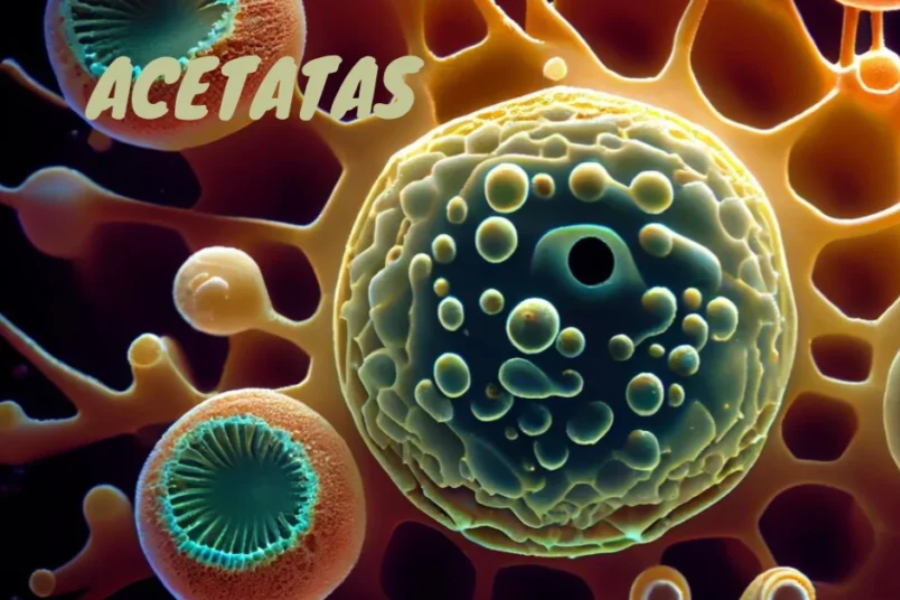Acetates: Functions, Advantages, and Precautions Across Multiple Sectors
Acetates, also referred to as acetatas, are vital chemical compounds that offer significant versatility in numerous industries. Derived from acetic acid, these substances are fundamental to sectors such as healthcare, fashion, food production, and manufacturing. This article explores the types of acetates, their widespread uses, benefits, and key safety precautions to take when working with them.
What Are Acetates?
Acetates, scientifically known as salts or esters of acetic acid, are chemical compounds characterized by the acetate ion (CH3COO−). These compounds form when acetic acid reacts with either bases (such as sodium hydroxide) or alcohols. For instance, sodium acetate (CH3COONa) is produced when acetic acid combines with sodium hydroxide, whereas ethyl acetate (CH3COOCH2CH3) forms when acetic acid reacts with ethanol.
Acetates possess a broad range of chemical reactivity, making them incredibly valuable across various industrial applications. Depending on the specific type of acetate used, they play distinct roles in different fields, from pharmaceuticals to textiles and food manufacturing.
Main Applications of Acetates
- Pharmaceutical Industry
Sodium Acetate: This compound is primarily utilized in medical treatments as an electrolyte replenisher, particularly in cases of sodium deficiency. It is also incorporated as a buffering agent in pharmaceutical formulations, helping to stabilize the pH of certain medications.
Acetate Esters: Esters like ethyl acetate are key solvents in pharmaceutical production. They aid in the extraction and purification of active ingredients, ensuring the final products meet safety and efficacy standards. - Textile Manufacturing
Cellulose Acetate: Widely known for its silk-like finish, cellulose acetate fibers are commonly used in the textile sector, especially for clothing, linings, and home decor. These fibers are valued not just for their appearance but also for their comfort, durability, and strength, making them a staple in high-quality fashion and interior designs. - Food Industry
Sodium Acetate: In food preservation, sodium acetate acts as a preservative and flavoring agent. It inhibits microbial growth, extending the shelf life of various food products. Additionally, it is often used in savory snacks, like chips, to enhance their taste. - Industrial Sector
Acetate Esters: Acetates such as ethyl and butyl acetate are essential solvents in the production of paints, adhesives, coatings, and inks. Their solvent properties facilitate the dissolution and application of various substances, proving critical in manufacturing processes across industries. - Cosmetics and Personal Care
Ethyl Acetate: In cosmetics, ethyl acetate is frequently used in nail polish removers due to its effective solvent properties, helping to dissolve nail polish while being gentle on the nails and surrounding skin.
Benefits of Acetates
- Versatility
Acetates are remarkably adaptable, serving diverse functions across multiple industries. Their ability to participate in various chemical reactions makes them invaluable in fields ranging from healthcare to fashion and industrial manufacturing. - Pharmaceutical Safety
Sodium acetate plays a key role in medical treatments and is considered safe for use as an electrolyte replenisher and buffering agent. Its effectiveness in maintaining the stability and pH of pharmaceuticals makes it a critical component in medicine. - Environmentally Friendly Options
Some acetates, particularly cellulose acetate, are biodegradable, offering a more eco-conscious alternative to synthetic materials. This characteristic is especially beneficial in reducing environmental harm in industries like textiles and packaging. - Effective Solvents
Acetate esters excel as solvents, making them indispensable in the creation of paints, coatings, adhesives, and inks. Their superior solvent capabilities facilitate product manufacturing, ensuring efficiency and consistency.
Safety Considerations When Handling Acetates
Despite their widespread use, acetates must be handled with caution due to potential risks in certain environments, particularly industrial and pharmaceutical settings.
- Inhalation Risks
Inhalation of acetate vapors, such as those from ethyl acetate, may lead to respiratory irritation, headaches, dizziness, and nausea. Prolonged exposure can result in more serious health issues. Adequate ventilation, along with respiratory protection such as masks or respirators, is crucial when working with acetates in industrial settings. - Skin and Eye Irritation
Direct contact with acetate compounds can cause skin irritation, and exposure to esters may lead to allergic reactions or dermatitis. Wearing personal protective equipment (PPE), such as gloves and safety goggles, is essential to prevent accidental exposure. - Environmental Impact
Although some acetates like cellulose acetate are biodegradable, others, particularly synthetic acetates, can harm the environment if improperly disposed of. It’s important to adhere to proper waste disposal practices and follow environmental regulations to mitigate ecological damage.
Conclusion
Acetates are indispensable in a wide range of sectors due to their multifunctionality, efficiency, and safety when properly utilized. From pharmaceuticals and textiles to food production and industrial applications, these compounds are essential in daily-use products and processes. Nevertheless, understanding and adhering to proper safety measures is critical to minimize any health or environmental risks associated with acetates. With careful handling, acetates continue to serve as a vital component in numerous industries, contributing to both technological advancement and everyday life.
(FAQs)
Q1: Which industries use acetates most frequently?
Acetates are used extensively in the pharmaceutical, textile, food, industrial, and cosmetics industries, each utilizing various types of acetates depending on their specific requirements.
Q2: Are acetates environmentally friendly?
Certain types of acetates, like cellulose acetate, are biodegradable, making them more eco-friendly than their synthetic counterparts. However, appropriate disposal methods are essential to minimize the environmental impact of non-biodegradable acetates.
Q3: What safety measures should be followed when using acetates?
It is essential to wear appropriate personal protective equipment, ensure adequate ventilation, and follow safety protocols to avoid inhalation or skin and eye exposure. Additionally, correct disposal methods must be employed to prevent environmental contamination.
Q4: Can acetates be safely used in food products?
Yes, sodium acetate is commonly used in food as a preservative and flavoring agent. It is considered safe for consumption when used in accordance with food safety standards.
Uncover the latest trends and captivating stories at mashablestory






